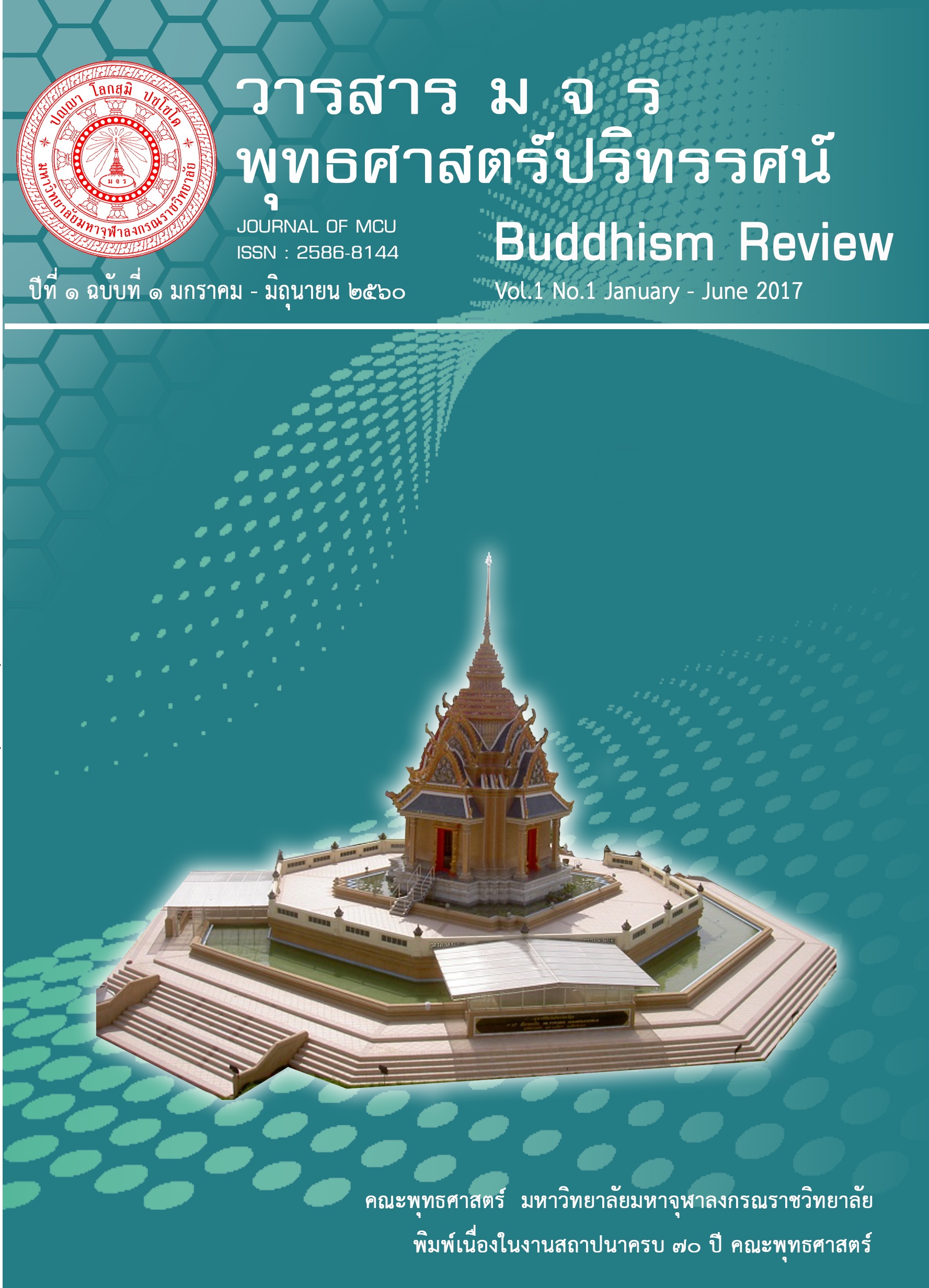ปรัชญา ศาสนา เทววิทยาและวิทยาศาสตร์
Main Article Content
บทคัดย่อ
ปรัชญาในทัศนะของนักคิดตะวันตกเป็นคาที่ยากสาหรับการนิยามความหมาย และสามารถนิยามความหมายได้จากแง่มุมที่หลากหลาย แต่อาจกล่าวอย่างง่ายๆ ว่าเป็นโลกทัศน์หรือความคิดของมนุษย์ที่ได้มาด้วยวิธีการคิดในเชิงเหตุผล ปรัชญาในความหมายของตะวันตกจึงมีลักษณะต่างจากปรัชญาในทัศนะของชาวตะวันออกโดยเฉพาะชาวอินเดียที่ถือว่า ปรัชญาคือความรู้ที่หมดความสงสัยเพราะได้มาจาก “ทรรศนะ” คือการ “เห็น” หรือตรัสรู้ของศาสดาหรือการวิวรณ์ของพระเจ้า แต่ถ้าถือว่าปรัชญาตะวันออกโดยเฉพาะปรัชญาอินเดียเป็นโลกทัศน์อย่างหนึ่ง ก็อาจกล่าวได้ว่า ปรัชญาตะวันออกก็เป็น “ปรัชญา” เหมือนกับปรัชญาตะวันตก แม้จะมีลักษณะบางอย่างต่างกันอยู่บ้าง ปรัชญาต่างกับศาสนาเมื่อมองในแง่ที่ศาสนาเป็นวิถีชีวิตที่เน้นศรัทธา การปฏิบัติและพิธีกรรม แต่ปรัชญาก็มีส่วนคล้ายกับศาสนาเมื่อมองในแง่คาสอนของศาสนา เพราะคาสอนของศาสนาก็คือโลกทัศน์หรือปรัชญาของศาสนานั้นๆ ปรัชญายังมีส่วนคล้ายและต่างกับเทววิทยา เพราะเทววิทยาพยายามอธิบายคาสอนของศาสนาด้วยวิธีการใช้เหตุผลแบบปรัชญา แต่มีศรัทธาแฝงอยู่เบื้องหลังความพยายามนั้นซึ่งต่างจากปรัชญาที่ห้ามมีศรัทธามาครอบงาความคิด
นอกจากนั้น ปรัชญาแม้จะมีลักษณะบางอย่างต่างจากวิทยาศาสตร์ แต่ก็มีความสัมพันธ์กับวิทยาศาสตร์ เพราะปรัชญาอาศัยข้อมูลทางวิทยาศาสตร์ในการแสวงหาความรู้ ส่วนวิทยาศาสตร์ก็ใช้วิธีการอุปนัยของปรัชญาในการแสวงหาความจริงและอาศัยแนวคิดพร้อมทั้งคาวิจารณ์ของปรัชญาในการพัฒนาวิทยาศาสตร์ให้ก้าวหน้ายิ่งขึ้น
Article Details
- บทความที่ได้รับการตีพิมพ์เป็นลิขสิทธิ์ของวารสาร มจร พุทธศาสตร์ปริทรรศน์
- ข้อความใดๆ ที่ปรากฎในบทความที่ได้รับการตีพิมพ์ในวารสาร ถือเป็นความรับผิดชอบของผู้เขียนบทความ และข้อคิดเห็นนั้นไม่ถือว่าเป็นทัศนะและความรับผิดชอบของกองบรรณาธิการวารสาร มจร พุทธศาสตร์ปริทรรศน์
เอกสารอ้างอิง
จินดา จันทร์แก้ว. “ปรัชญา วิทยาศาสตร์ และศาสนา”, พุทธจักร ปีที่ ๔๙ ฉบับที่ ๒ (กุมภาพันธ์๒๕๓๘).
ภาควิชาปรัชญา คณะอักษรศาสตร์ จุฬาลงกรณ์มหาวิทยาลัย. การใช้เหตุผล: ตรรกวิทยาเชิงปฏิบัติ. กรุงเทพฯ: สานักพิมพ์แห่งจุฬาลงกรณ์มหาวิทยาลัย, ๒๕๔๑.
ราชบัณฑิตยสถาน. พจนานุกรมฉบับราชบัณฑิตยสถาน พ.ศ. ๒๕๔๒. กรุงเทพฯ: นานมีบุ๊คส์ พับลิเคชั่นส์,๒๕๔๖.
วรยุทธ ศรีวรกุล. “ตรรกวิทยาเปรียบเทียบ: อริสโตเติล เฮเกล เต๋า และพุทธ”, วารสารธรรมศาสตร์ ปี ที่ ๒๐ ฉบับที่ ๒ (พฤษภาคม-สิงหาคม ๒๕๓๗).
ภาษาอังกฤษ
Arthur, John. Studying Philosophy: A Guide for the Perplexed. Second edition. Upper Saddle River: Pearson Education, 2004.
Brightman, Edgar Sheffield. An Introduction to Philosophy. Third edition. New York: Holt Rinehart and Winston, 1963.
Bunchua, Kirti. Logic for Contextuality. Bangkok: Assumption University, 1993.
Blackburn, Simon. Dictionary of Philosophy. New York: Oxford University Press, 1996.
Earle, William James. Introduction to Philosophy. New York: McGra-Hill, 1992.
Halverson, William H. A Concise Introduction to Philosophy. New York: Random House, 1981.
Hosper, John. Philosophical Analysis. Bombay: Allied Publishers, 1986.
Nigosian, S.A. World Faiths, second edition. New York: St. Martin’s Press, 1994.
Pojman, Louis P. Philosophy: The Pursuit of Wisdom. Stanford: Wadsworth, 2001.
Puligandla, R. Fundamentals of Indian Philosophy. Nashville: Abingdon Press, 1975.
Thilly, Frank. A History of Philosophy. Allahabad: Central Book Depot, 1981.
Titus, Harold H. Living Issues in Philosophy. New York: Van Nostrand Reinhold, 1970.
“เทววิทยา”, แหล่งที่มา [ออนไลน์] www. wikipedia.org./wiki/Theology+theology&hlct=th&ct=clnk&cd=l&gl=th, p. 1 [เข้าถึงข้อมูล ๗ พฤษภาคม ๒๕๕๐].


